Improv en Español: Lessons from Delivering My First Workshop in Spanish
I delivered my first workshop in another language. It didn’t quite go as planned.
I’ve delivered nearly 1,000 keynotes, workshops, and trainings throughout the course of my career. I’ve spoken at massive banquet halls, an off-broadway theater, and more hotel conference rooms than I can count. A few weeks ago, I did something I had never done before.
For the first time, I delivered a workshop in another language.
It was a youth program on empathy and resilience sponsored by UNFPA for a group of teenagers… in Panama. ¡Y estaba en español!
And I know what you’re thinking, “I didn’t know you were fluent in Spanish!” Well, I’m not.
Yes, I took Spanish for three years in high school. Yes, I have lived in Panama for the last four years. Yes, I have a 1500+ day streak on Duolingo… Pero hablo español como un niño de tres años…
BUT I do know enough Spanish to get started, I do have access to Google Translate, and I did print out instructions in Spanish on notecards. And most importantly, I have enough sense to not do it alone.
And if I’m being perfectly honest, Giancarlo, an incredibly talented facilitator who is actually bilingual, did a lot of the heavy lifting for the program.
It turns out it’s easier to teach a bilingual person the core concepts of a workshop than it is to teach a facilitator how to instruct, facilitate, and debrief a 90-minute session on improv and communication… in a language they can’t communicate in.
It’s like how Amargeddon taught us that apparently it’s easier to teach drillers how to be astronauts than astronauts how to be drillers…
But despite all of that, I still did it! I still facilitated my content in Spanish. And it was exhilarating, empowering, and embarrassing, all at the same time.
Being a “veteran” in your field feels great. It feels like you know what’s coming, like you have the playbook down to a science. You know the exercises, can anticipate the questions, and know how to guide people to the lessons you’re trying to instill.
While stepping into the unknown can be intimidating, doing something outside of your comfort zone, adjacent to something you’re already good at, is a great way to build capability, renew your enthusiasm, and (in my case) force yourself to practice your Spanish.
So what did I learn (besides how to say “Rock Paper Scissors” in Spanish: “Peidra, Papel, o Tijeras”)?
1. Growth Comes from Being Uncomfortable
The more proficient you become in a field, the less you might feel that jolt of learning something truly new. Delivering a workshop in another language, even one I’ve delivered hundreds of times before, felt like doing that first-ever workshop again.
It felt like I was transported back to my days at P&G, offering up free workshops for my team to test out whether concepts from improv and stand-up actually apply to business (spoiler alert: they do).
There’s value in vulnerability, of putting yourself in uncomfortable situations, because that’s how you grow. Not only did the workshop (and the prep for it) help me improve my Spanish, it helped me become a better facilitator overall. Because I was once again in a “student” mindset as opposed to “teacher.”
There’s also a nice dose of humility you get when a group of teenagers start laughing because of your terrible pronunciation of words like “caminen,” “paren,” and “cuchillo.”
2. The Rules Still Apply—Just in a Different Context
Prior to the workshop, I was incredibly nervous as I wasn’t entirely sure what to expect. It felt like I was on unfamiliar terrain. But guess what? I wasn’t, at least not fully. The essence of communication, the rhythm of the room, the engagement with the audience—all of that translates.
My first instinct was to panic, to focus on every grammatical slip, but then I realized I still knew the most important things: how to connect… and how to use a lot of hand gestures.
And as soon as I got my first laugh from the audience (when I told them my Spanish sounds like it’s coming from a muppet), I eased into something I’ve done hundreds of times before.
Side Note: This is an incredible benefit to adding humor early into a presentation. Once you get that first laugh, both you and the audience relax a little bit for what’s to come.
Whether it’s in English or Spanish, people respond to authenticity. And we, as individuals, fall back on our training, experience, and expertise. And, unsurprisingly, humor still works—even if your punchline has a little accent.
3. Don’t Compare Your Beginning to Your Mastery
Here’s the thing about trying something new: your brain wants to compare it to what you’re already good at. I made that mistake immediately after the workshop.
Instead of celebrating the fact that I had just delivered my first workshop in a different language, I found myself obsessing over where I’d stumbled, where I wasn’t as smooth as I would’ve been in English, where I kinda had no clue whatsoever of what someone said during the debrief (once again, thank you to Giancarlo for saving me).
But I had to remind myself: of course it wasn’t as polished. I’ve done nearly 1,000 programs in English. I’ve done uno in Spanish.
The danger of mastery is that it can mess with your perspective when you try something new. We tend to forget that the first time we did anything, we weren’t amazing. I wasn’t born knowing how to give a keynote in English either. I wasn’t facilitating a rousing game of “Bunny Bunny” with the other babies in the nursery.
When you’re stepping into a new challenge, it can be easy to compare yourself to other people who have been doing it for forever, or to even compare it to how good you are at something you’ve already mastered. But you’re still a beginner.
This happens a lot with people learning the skill of humor, especially when I’m working with executives or fellow speakers. They’re so good at board meetings or their keynote, but as soon as they try comedy and a joke falls flat, they get discouraged and never want anything to do with it ever again. Any new skill takes time to learn.
In hindsight, I did something that was far more challenging than most of my other workshops, and I did it better than I did my first English workshop all those years ago. That’s what counts.
Trying something new within a field you already know isn’t just about the challenge—it’s about rediscovering yourself in that process. I learned that, whether I realized it or not, I’d gotten a bit too comfortable in my workshops. They became a bit too “easy” so I wasn’t committed as fully as I once was. But let me tell you, nothing shakes the dust off like stepping into the unknown.
My advice: even if you think you’ve mastered your thing, whatever it is, keep finding ways to get uncomfortable. The terrain may look familiar, but there is adventure always waiting to be found.
(an)dres
I mean (an)drew…
PS. ¿Hablas español? Estoy buscando más personas con las que practicar.



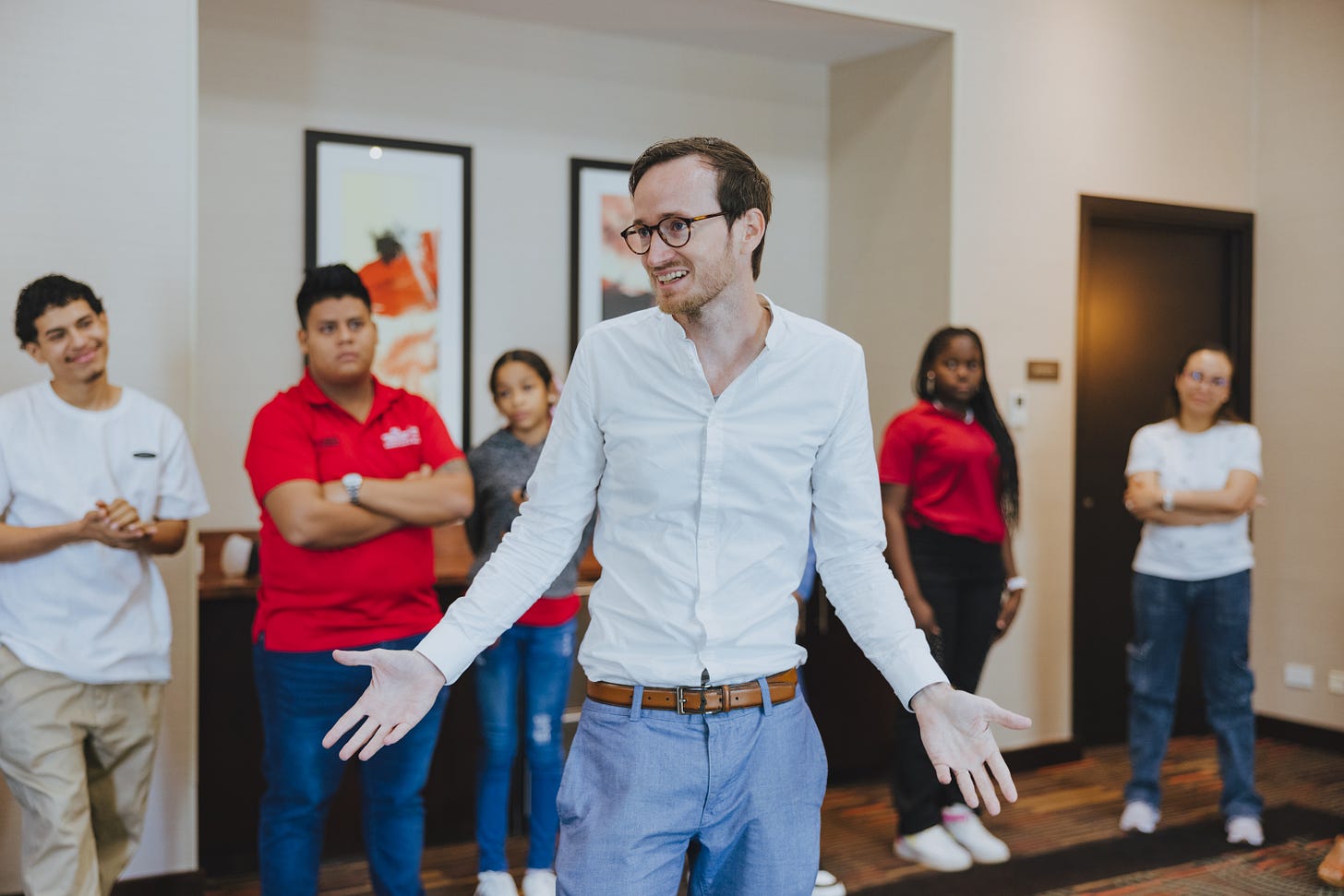

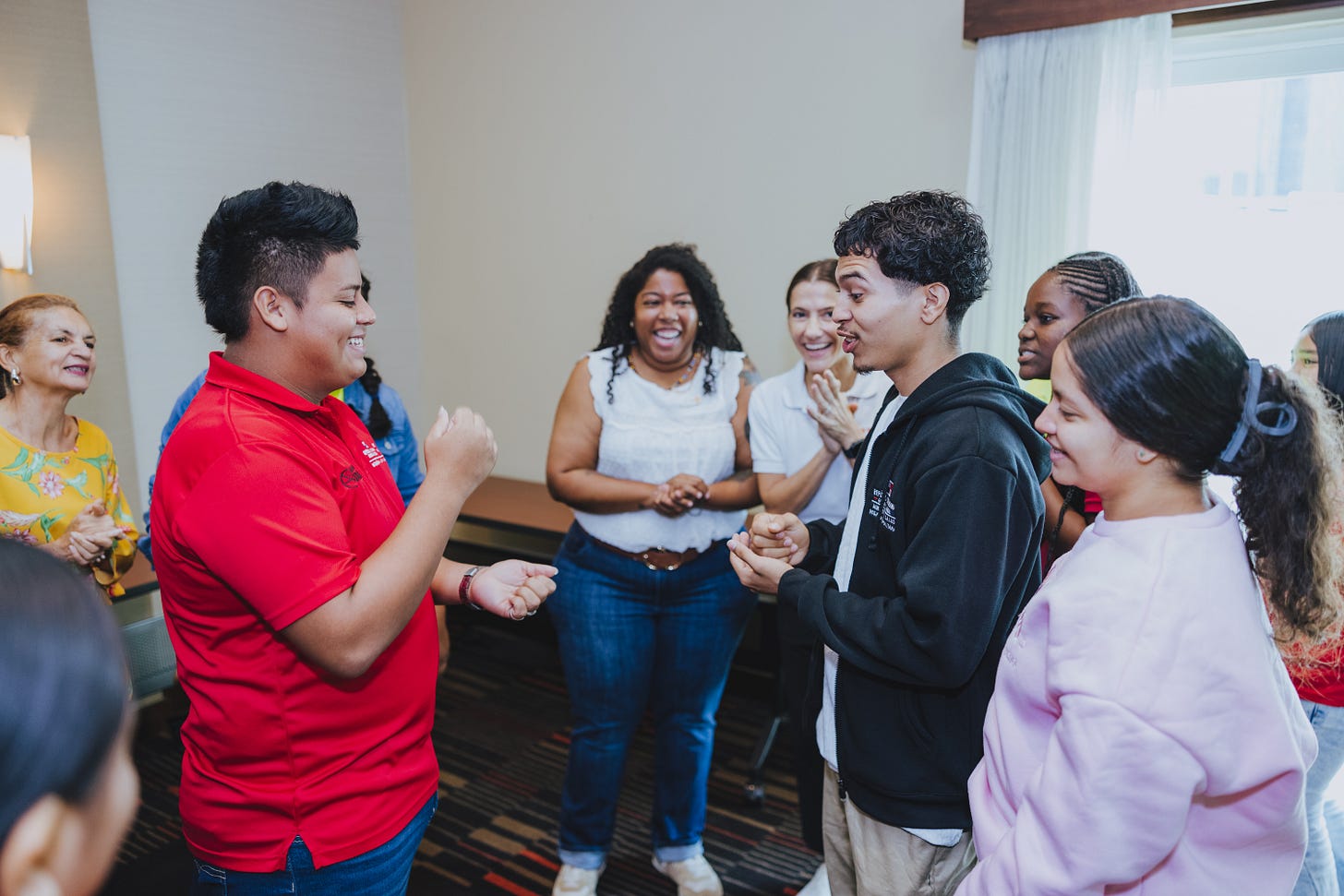
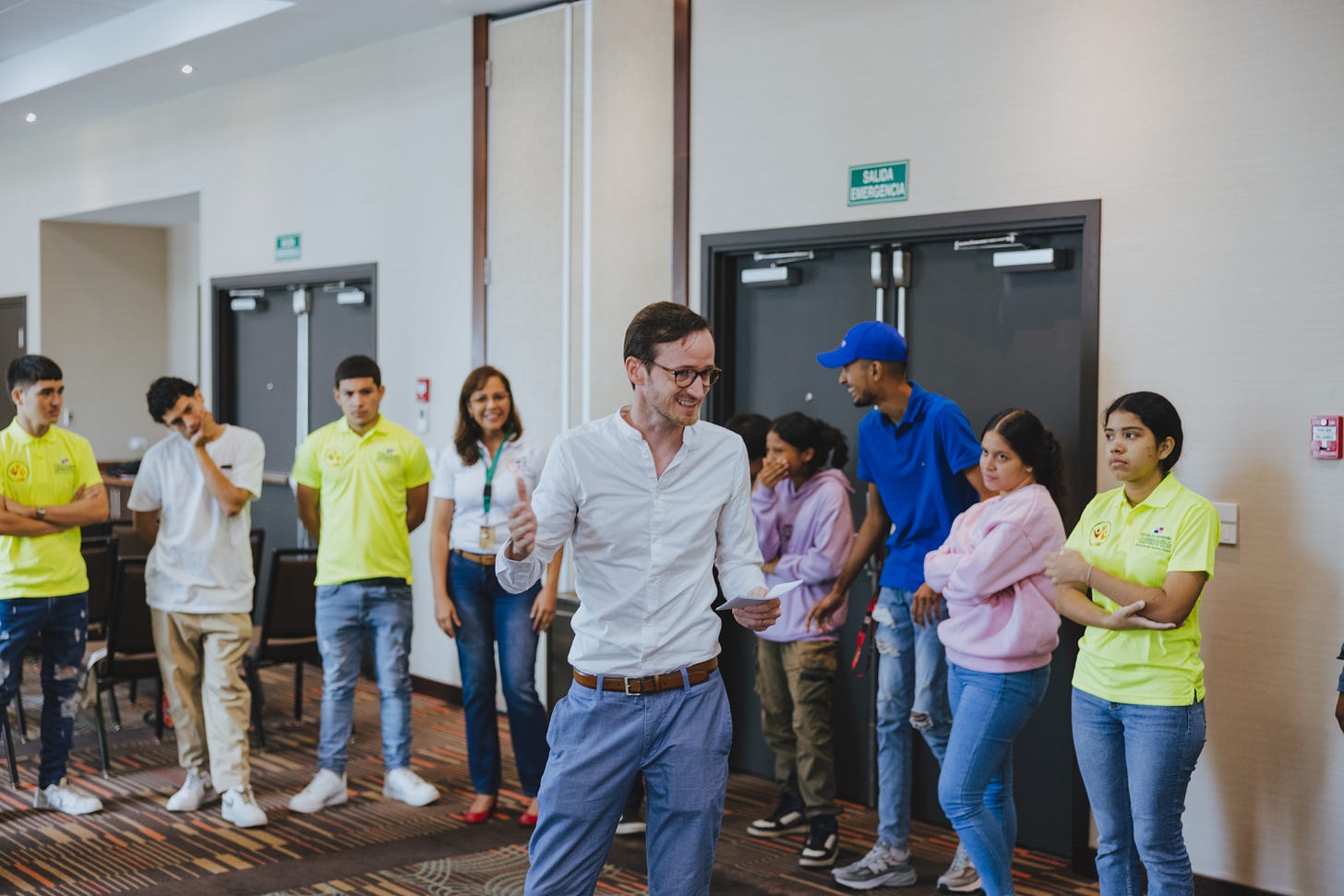
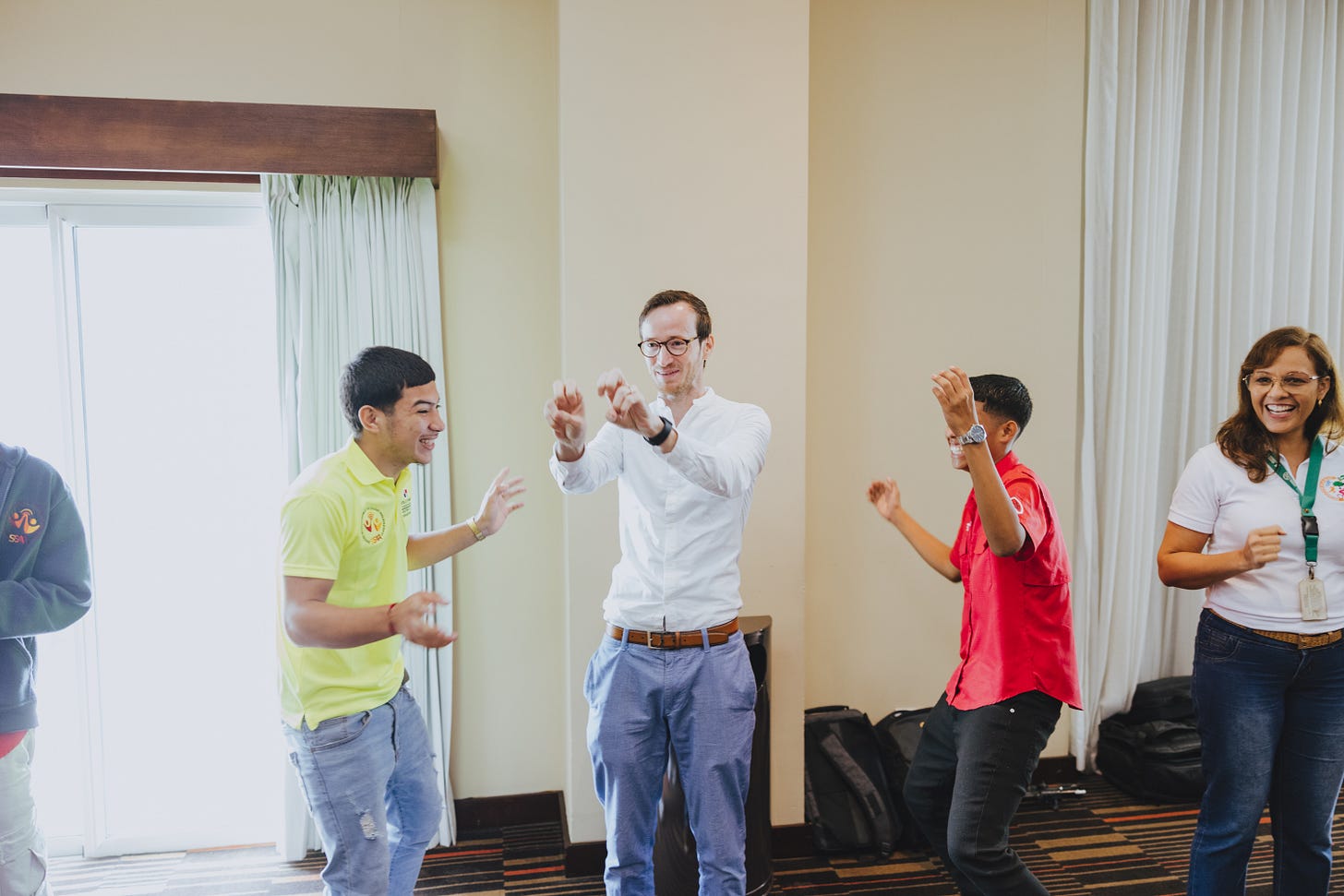
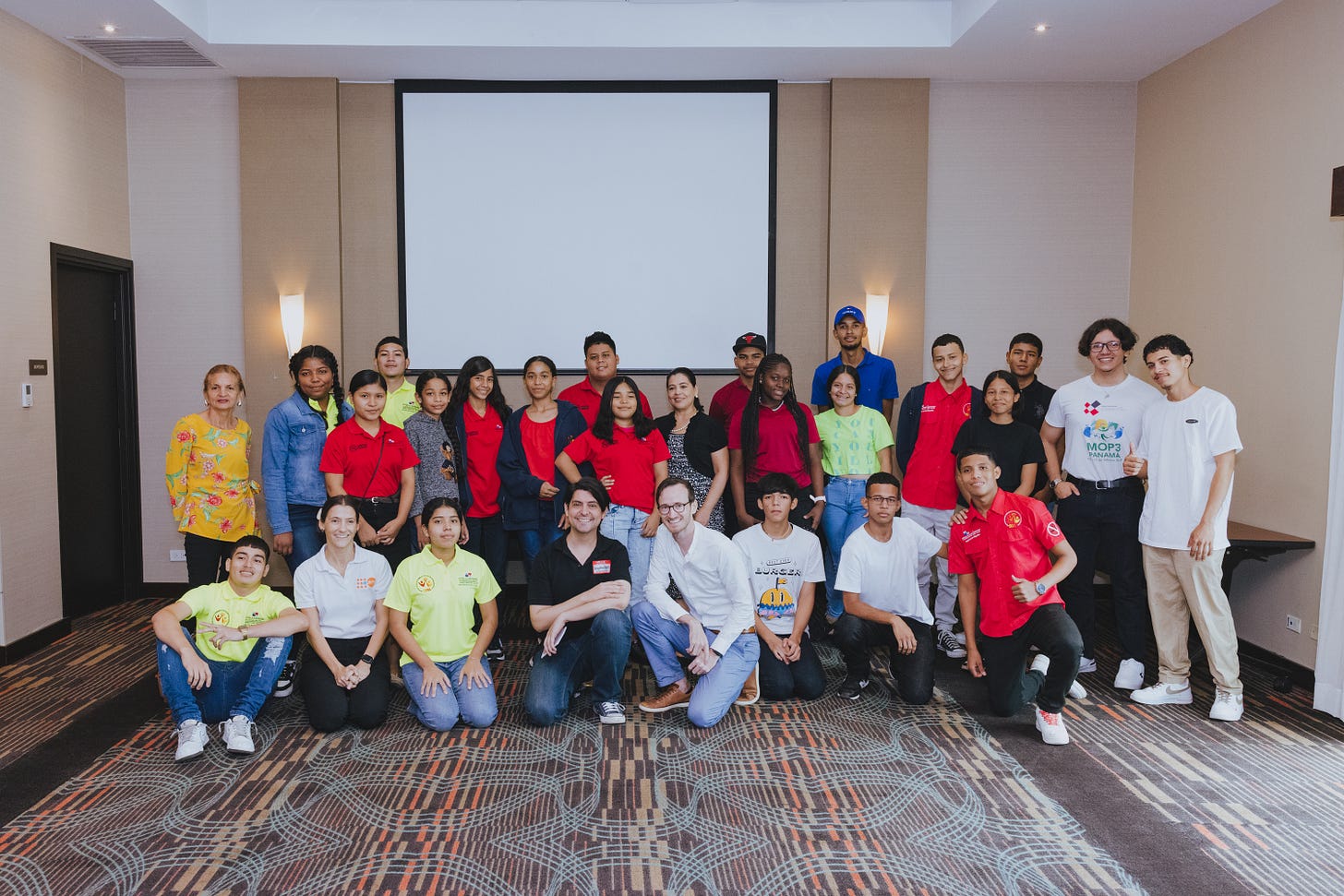
Great insights!! This applies to so many disciplines -- and we keep having to learn it over and over again. It's so tempting to go back to what we know -- because it's safe -- but growth happens in those awkward moments.
Hey! Buen trabajo. Puedes practicar conmigo!